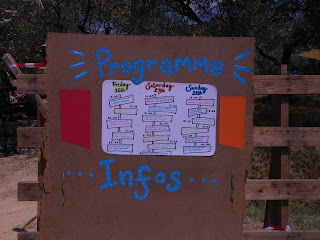Sikasso is a typical West African junction town. A crossroads in the Sahel where ancient mini buses with benedictions in peeling paint or names like `Obama', rattle to a halt, small windows spilling open in a tangle of elbows and heads, roofs piled high with a cargo of mopeds, bleating goats and baskets brimming with ripe mangoes or dried fish. For these stoic passengers, Sikasso is a brief rest on a long journey as they transit between Mali, Burkina Faso and Côte d'Ivoire. For another group of itinerant travellers though Sikasso is the destination to which they are heading.
Once a year musicians from across West Africa arrive in the busy town on the border between Mali and Burkina Faso. The occasion is Le Triangle du Balafon, a fraternal but fiercely competitive celebration of the West African xylophone. For months, groups from Mali, Burkina Faso and as far as Guinea Conakry have been rehearsing and choreographing. Many have composed a new piece to debut at the festival, and are united in their hope of returning home with the small bronze statue awarded to best group.
Last year, first prize was won by the group of Mamadou Diabaté. In this video we can enjoy the virtuosity that ensured the little bronze statue was packed carefully into one of those Sikasso mini buses, and came home to Burkina Faso.






